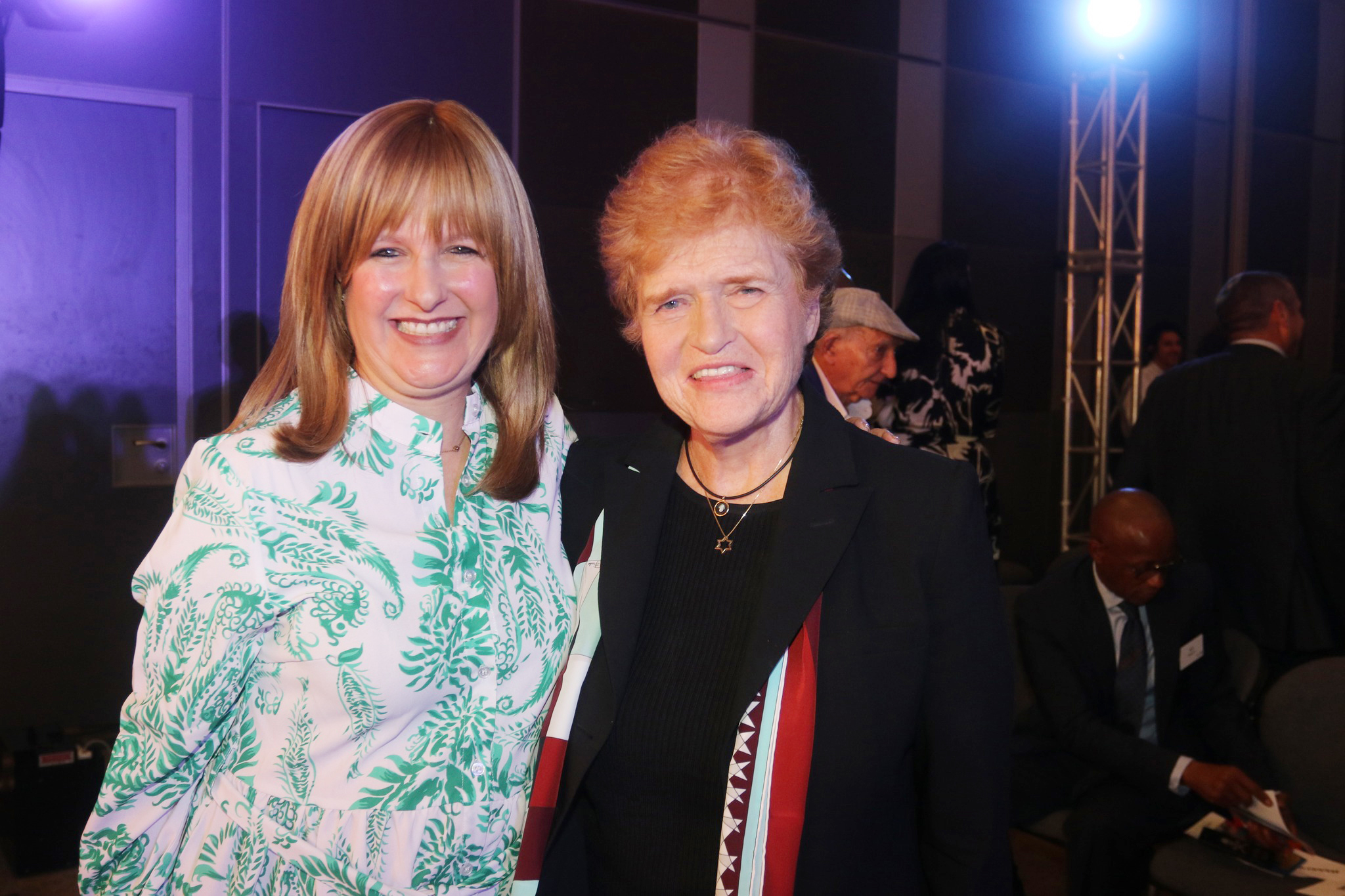
Banner

Jew hatred transcends race, income, and politics, says US antisemitism envoy

Continue Reading
click to dowload our latest edition
CLICK HERE TO SUBSCRIBE TO OUR NEWSLETTER


Published
1 year agoon
Antisemitism is on the rise throughout the world, Ambassador Deborah Lipstadt, the United States (US) Special Envoy to Monitor and Combat Antisemitism, told the audience at the South African Jewish Board of Deputies (SAJBD) Gauteng Conference at the Sandton Convention Centre last Thursday, 10 November.
“The best wish I got for Rosh Hashanah walking into shul this year was, ‘May you have an easy year.’ Sadly, it hasn’t been that way,” she said.
The New York-born Lipstadt said no matter where we turn, we seem to see escalations of Jew hatred. “We see it in physical attacks, rhetorical expressions, antisemitic imagery, and stereotypes. We hear it from long-term haters, government officials, NGO [non-governmental organisation] leaders, and from the person on the street to the person posting online. We find it on all points of the political spectrum.”
Lipstadt, appointed to the position by US President Joe Biden on 3 May, is among those at the forefront of combatting antisemitism worldwide, SAJBD Gauteng Council Executive Member Lesley-Anne Gatter said in her introduction to Lipstadt.
Lipstadt said one pundit quipped, “An antisemite is someone who hates Jews more than is absolutely necessary.”
“I may hate you for a good reason or because I’m simply paranoid, but if I hate you one iota more because you’re Jewish, that’s antisemitism.”
Antisemitism is a prejudice like other prejudices, yet it also has unique characteristics, said Lipstadt, described by the White House as “a renowned scholar of the Holocaust and modern antisemitism”. “First and foremost, it’s a conspiracy theory. It conceives of Jews as engaged in a giant, powerful conspiracy to haunt all other groups for their [Jews’] own good, particularly groups that are less powerful than them. Since, according to the antisemite, the Jew is all powerful, this includes just about everything.”
Second, unlike most other prejudices which tend to come from the right of the political spectrum, antisemitism is free flowing, emanating from all directions, Lipstadt said. “Irrespective of one’s political worldview, one can be an antisemite. One person can stand at one end of the political spectrum compared to another person, and they can both still share the same view of the Jew.”
Third, virtually all prejudiced people, certainly in South Africa’s tragic history, think in terms of racism, Lipstadt said. “The racist looks at a person of colour and sees someone not quite as smart, industrious, and talented as they are. They see someone as lesser-than.”
Antisemitism has a further but unique element, she said. “The antisemite also sees Jews as more powerful, controlling, and smarter but not in a good way – conniving, manipulating. In other words, using those smarts for nefarious ends. They think, ‘The Jew is someone I have to fear.’ So, not only does the antisemite punch down, as the racist does, they also punch up.”
Lipstadt said this is significant because, since you loathe and dismiss people you perceive as inferior, when you perceive someone as superior, not only do you loathe them, you fear them. “To protect yourself and your family, you must stop them. You have an obligation not just to keep them away from you, but to fight against them.”
Lipstadt, the author of Antisemitism: Here and Now, said one of the reasons she’s anxious to help people understand antisemitism is that often – certainly in the US – institutions, universities, corporations, and NGOs don’t include antisemitism when they talk about their fight against various prejudices.
“People ask me, ‘Why is antisemitism missing? Doesn’t hatred against us count? Is the fact that it’s omitted an act of antisemitism?’”
Lipstadt said sometimes it may be, while at other times, it may be an innocent oversight or a case of people failing to recognise that antisemitism is a prejudice akin to all other prejudices. “Part of the reason for this is many people finding it hard to conceive of the Jew as a victim. Jews are resilient, maybe it’s because we have had to overcome antisemitism in our history. We’ve faced so many terrible travails that surviving and recovering are built into the Jewish communal DNA. Often Jews don’t seem to present as victims who need support and protection, as is often case with other groups.”
When Lipstadt first visited South Africa in 2002, “She was already an international celebrity, having been propelled into the spotlight because of the now famous trial involving notorious Holocaust denier and Nazi apologist David Irving,” Gatter said. “Since then, Professor Lipstadt’s stature has increased. She has been one of the most sought-after speakers on the international lecture circuit.”
Lipstadt has made three additional visits to South Africa since her first visit, “so I feel like an old-timer here”, she chuckled. “Secretary of State Antony Blinken, my boss to whom I report, was here for broad discussion with South Africa’s top government officials a little more than two months ago. Just last week, when I saw him at the state department and told him I was heading here, his face lit up. He was absolutely delighted. He told me how much he truly values his dialogue and partnership with minister of internal relations and cooperation, Dr Naledi Pandor. Of course, President Biden and Vice-President Kamala Harris were honoured to have welcomed President Cyril Ramaphosa to Washington DC just a few months ago.”